Long regarded as a charlatan’s game, alchemy is now taking its proper place in the history of science.

In a light-filled room in a building behind the State Museum of Prehistory in Halle, Germany, a row of tables is lined with oddly shaped glass vessels. When Christian-Heinrich Wunderlich saw them for the first time three years ago, they were in thousands of pieces, enough to fill six crates. Archaeologists had discovered the fragments during a rescue excavation in nearby Wittenberg in a niche underneath what had been a fifteenth-century monastery’s basement stairway.
When the crates had first been brought to his lab, Wunderlich, who is the head of the Saxony-Anhalt State Office for Heritage Management and Archaeology’s restoration facility, assumed they contained centuries-old ordinary household garbage, likely broken drinking glasses and clay cookware, that had been swept up and forgotten. “At first we thought it was just a lot of glass,” Wunderlich recalls. “We noticed the weird shapes, and just shook our heads.”
A few of the most misshapen shards landed on Wunderlich’s desk. He noted that some were discolored and melted, as though they had been subjected to extreme heat. At least half were coated with curious residues—silvery crystals, for example, or thick, crusty red or brown layers. As Wunderlich pondered them, he began to wonder if there was something else to the story. He decided to pursue a hunch, scraping tiny bits of residue off one of the shards for chemical analysis. The results included the presence of copious antimony and antimony ore. “That’s when we understood that these were the tools of an alchemist,” he says.
Diese Geschichte stammt aus der January/February 2016-Ausgabe von Archaeology.
Starten Sie Ihre 7-tägige kostenlose Testversion von Magzter GOLD, um auf Tausende kuratierte Premium-Storys sowie über 8.000 Zeitschriften und Zeitungen zuzugreifen.
Bereits Abonnent ? Anmelden
Diese Geschichte stammt aus der January/February 2016-Ausgabe von Archaeology.
Starten Sie Ihre 7-tägige kostenlose Testversion von Magzter GOLD, um auf Tausende kuratierte Premium-Storys sowie über 8.000 Zeitschriften und Zeitungen zuzugreifen.
Bereits Abonnent? Anmelden
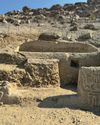
ORIGINS OF PERUVIAN RELIGION
While investigating looters' holes at the site of La Otra Banda in northern Peru's Zaña Valley, archaeologist Luis A. Muro Ynoñán of the Field Museum and the Pontifical Catholic University of Peru spotted carved blocks around seven feet below the surface.
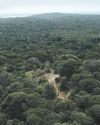
ISLAND OF FREEDOM
Many of the enslaved Africans sent to Brazil beginning in 1549 were from what is now Angola, where one of the most widely spoken languages was Kimbundu.
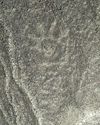
NAZCA GHOST GLYPHS
From the 1940s to the early 2000s, geoglyphs were discovered in the Nazca Desert of southern Peru depicting animals, humans, and other figures at the rate of 1.5 per year.
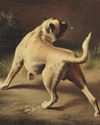
COLONIAL COMPANIONS
The ancestry of dogs in seventeenth-century Jamestown offers a window into social dynamics between Indigenous people and early colonists.
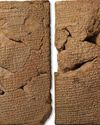
BAD MOON RISING
The British Museum houses around 130,000 clay tablets from ancient Mesopotamia written in cuneiform script between 3200 B.C. and the first century A.D.
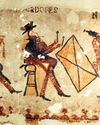
DANCING DAYS OF THE MAYA
In the mountains of Guatemala, murals depict elaborate performances combining Catholic and Indigenous traditions
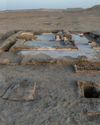
LOST GREEK TRAGEDIES REVIVED
How a scholar discovered passages from a great Athenian playwright on a discarded papyrus

Medieval England's Coveted Cargo
Archaeologists dive on a ship laden with marble bound for the kingdom's grandest cathedrals

Unearthing a Forgotten Roman Town
A stretch of Italian farmland concealed one of the small cities that powered the empire
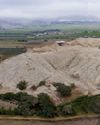
TOP 10 DISCOVERIES OF 2024
ARCHAEOLOGY magazine reveals the year's most exciting finds